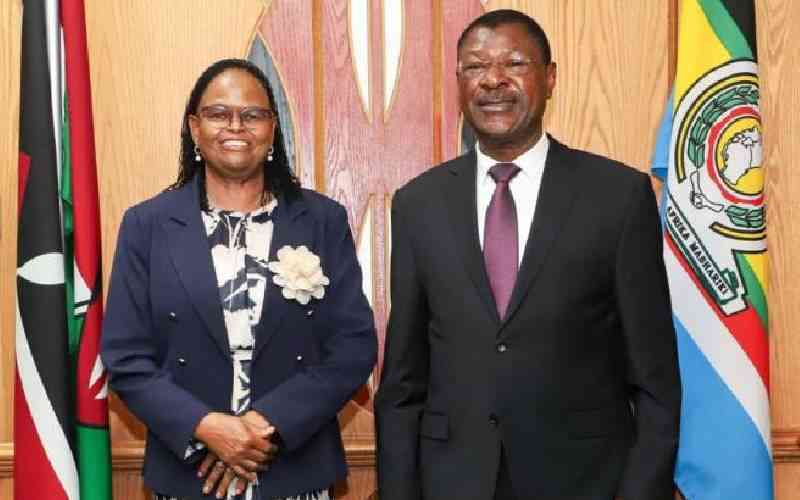×
The Standard e-Paper
Fearless, Trusted News

National Assembly Speaker Moses Wetang'ula has urged Chief Justice Martha Koome to explore unclear areas within the administration of criminal justice, including those related to forestry, water, and immigration.
Wetang'ula, who has had the privilege of serving in the Legislature and Judiciary, emphasized his understanding of the tensions that often brew between these two arms of government.